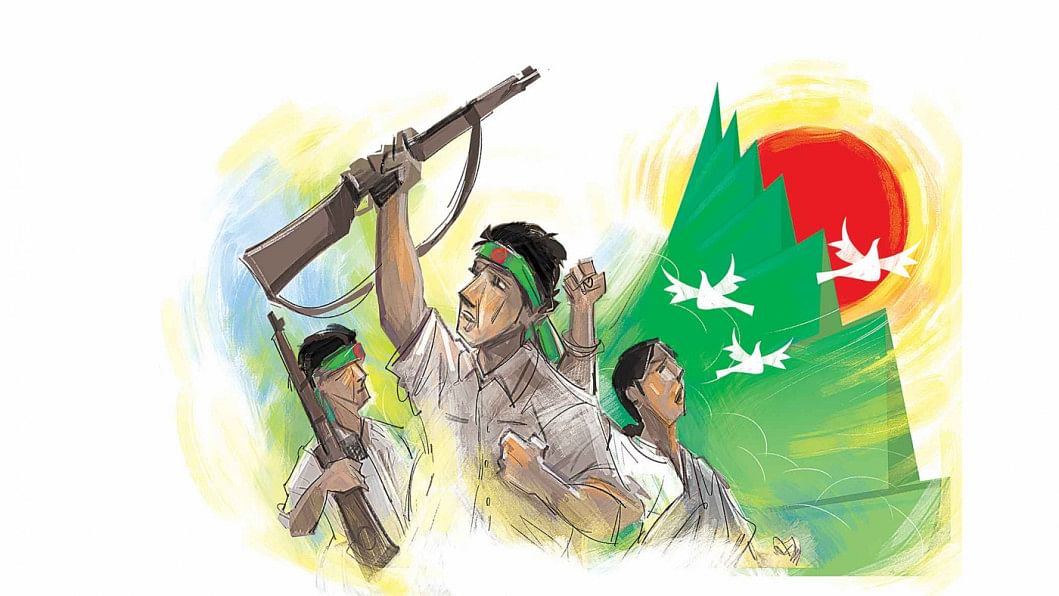Documenting ‘71

Today, we commemorate 51 years since the birth of our beloved country. As we celebrate the revolutionary zeal and unwavering resolve of the freedom-loving people of this land, who opened up a new chapter in the history of the Bengali nation, we also pay tribute to all those who lost their lives at the hands of the Pakistani military and their local collaborators. We remember, with great respect, the monumental sacrifices made, and the trauma and loss that so many families suffered.
Half a century after liberation, we must now prepare ourselves for a time when the majority of Bangladeshi citizens will not have directly experienced the Liberation War. More than one-fourth of the country's population is already in the 15-29 age group. For them, and the next generations, their knowledge of our struggle for liberation will depend on how well we preserve and re-tell our stories.
It is to this end that, in this year's Victory Day Special, we focused on the important roles many played in documenting 1971, whether it was the female photojournalists who photographed survivors of war with great empathy, or the early historians who collected crucial oral testimonies from that period.
We live in a time when much progress has been made in achieving the Bangladesh that was dreamt of in 1971, especially in terms of development milestones. However, we are yet to hold true to the spirit of the Liberation War in terms of creating a just, equal and progressive society. As we go into this new year, let us remember anew the spirit of '71, and the founding principles of this nation as laid out by Father of the Nation Bangabandhu Sheikh Mujibur Rahman – nationalism, democracy, socialism, and secularism – and ensure we preserve our history in a way that highlights these enlightened ideals.
Mahfuz Anam
Editor & Publisher

 For all latest news, follow The Daily Star's Google News channel.
For all latest news, follow The Daily Star's Google News channel. 



Comments